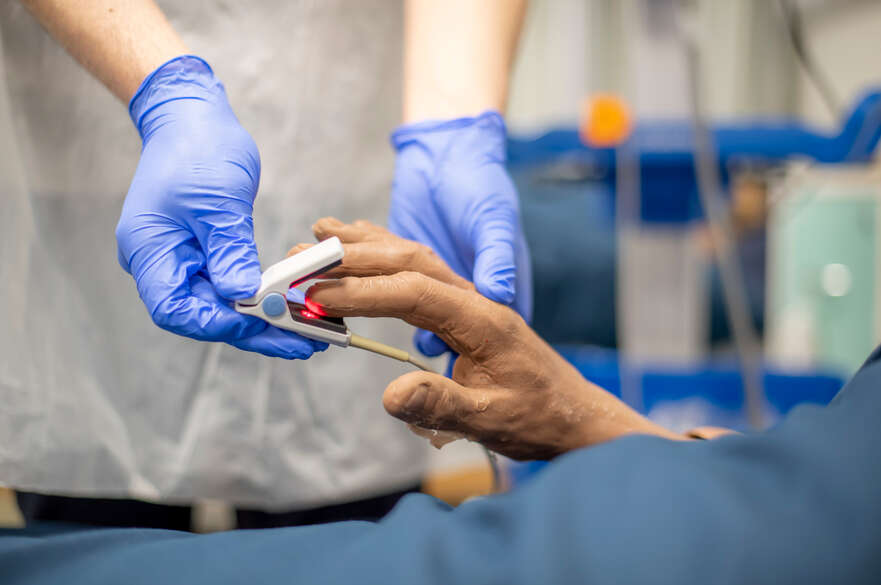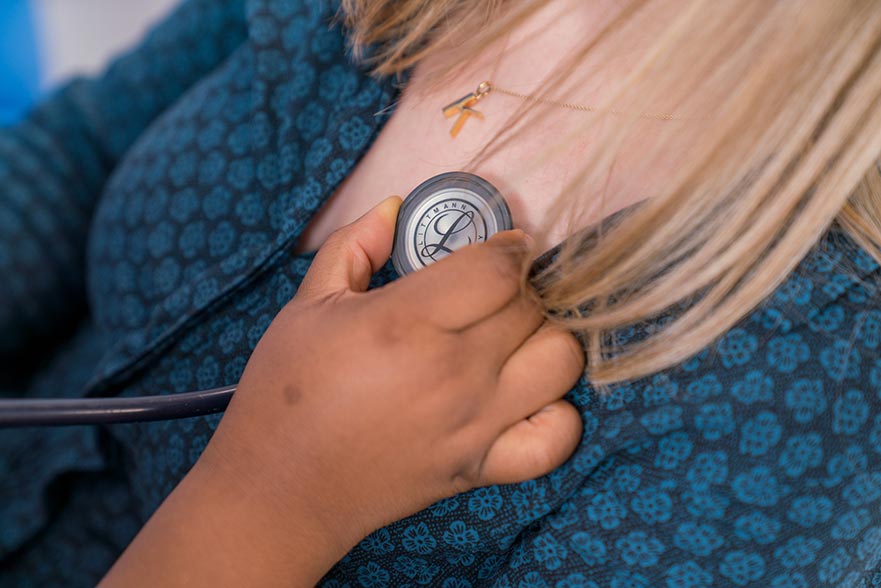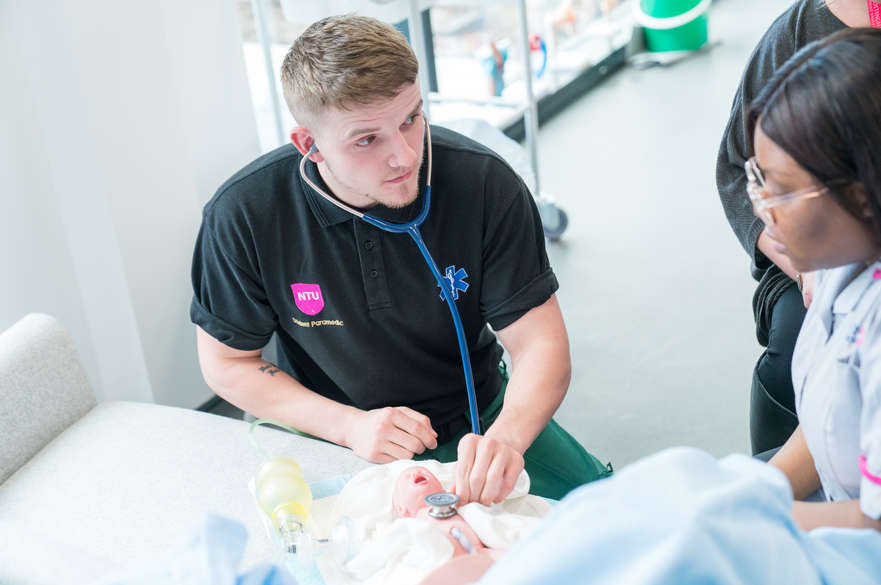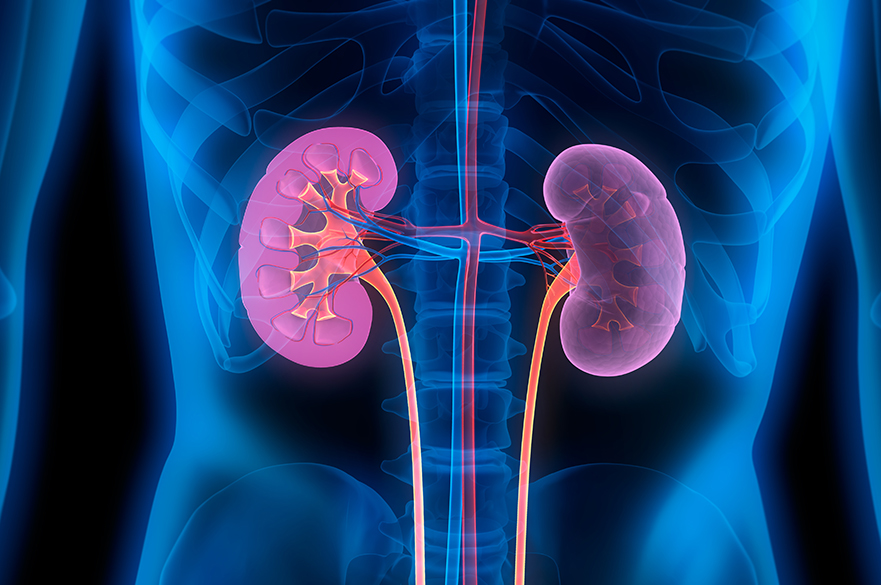Adult Critical Care BSc (Hons); Postgraduate Certificate in; Postgraduate Diploma in; MSc; Professional Certificate in
About this course
The Institute of Health and Allied Professions at NTU offers a comprehensive suite of continuous professional development (CPD) courses that have been designed and developed to meet the needs of the local health sector workforce.
The Adult Critical Care (Post-Registration) courses have been developed with Nottingham University Hospitals (NUH) NHS Trust critical care leads, alongside NTU colleagues from the Institute of Health and Allied Professions.
The principle aims for this course is to provide post-qualification continuing professional development pertinent to the students’ area of work and enhance the knowledge skills and values of staff within critical care. These are core attributes required to develop and deliver a workforce, with the capabilities to deliver a safe and world-class service to Adult Critical Care patients.
Why do this course?
What you’ll study
The curriculum is directly based on the National Standards for Adult Critical Care Nurse Education (2016), the National Critical Care Competencies (CC3N 2015) together with other relevant elements from National guidelines, such as Obstetric and National Trauma Competencies (2017).
The content will include theory on the physiology and treatment techniques of various critical care practices based on a system based approach. The taught elements of the course will be via a variety of facilitative teaching techniques in order to address the differing learning styles of the students. These include, evidence based lecture style, scenario based learning and the inclusion of clinical skills simulation. The evidence base for the Critical Care practices and research will be critically analysed by the student and incorporated into the taught elements together with the assessment process and as a self -directed process in order to complete elements of the National Competencies. The learning environment and level of teaching will be the same for each level of study (post registration certificate, (level 6) or post graduate (level 7) The level of study and therefore attainment will be differentiated at assessment only, students will be assessed at either Level 6 or 7.
- Professional Certificate (Level 6)
- Postgraduate Certificate (Level 7)
- Postgraduate Diploma (Level 7)
- BSc
- MSc
Critical Care 1
This module focuses on the assessment, management and care of the critically ill patient with underlying respiratory pathophysiology, cardiac compromise, acute kidney injury and care of the patient in special circumstances.
Critical Care 2
After studying this module you should have a critical understanding of knowledge and demonstrate in practice the assessment, management and care of the critically ill adult patient with underlying gastrointestinal, liver, biliary and neurological pathophysiology.
Critical Care 1
This module focuses on the assessment, management and care of the critically ill patient with underlying respiratory pathophysiology, cardiac compromise, acute kidney injury and care of the patient in special circumstances.
Critical Care 2
After studying this module you should have a critical understanding of knowledge and demonstrate in practice the assessment, management and care of the critically ill adult patient with underlying gastrointestinal, liver, biliary and neurological pathophysiology.
Critical Care 1
This module focuses on the assessment, management and care of the critically ill patient with underlying respiratory pathophysiology, cardiac compromise, acute kidney injury and care of the patient in special circumstances.
Critical Care 2
After studying this module you should have a critical understanding of knowledge and demonstrate in practice the assessment, management and care of the critically ill adult patient with underlying gastrointestinal, liver, biliary and neurological pathophysiology.
Research in Nursing, Health, and Social Care
This module explores contemporary issues and debates in health research. The module will prepare students with the knowledge and skills required to undertake research in their chosen field of professional practice.
Optional Modules
Lifecycle of Clinical Research (30 credits)
This module aims to develop understanding of the practical and regulatory issues associated with carrying out health and social care related research. You’ll explore different types of research studies and their challenges, discuss research design and delivery including the importance of patient and public involvement, and learn how to identify funding and resource requirements.
Leading Health and Social Care Research (30 credits)
This module aims to help you understand the principles of planning, patient recruitment, piloting and feasibility assessments. You will explore how collaboration can enhance study feasibility and quality, appraise the attributes of an inclusive researcher, and develop a critical and reflective approach to leading and delivering health and social care research.
Trial Management (30 credits)
This module will equip you with the knowledge and skills to manage a research study, including project planning, resource management and risk management. Your skills and confidence to manage a clinical trial will be enhanced, and you will explore strategies that can be implemented to ensure strategies are completed on-time and within budget.
Research Governance (15 credits)
In this module you will review Good Clinical Practice (GCP) principles for conducting and reporting clinical trials. You will discuss quality assurance and quality control systems used for monitoring and audit, and learn to effectively prepare for an inspection.
Research Ethics (15 credits)
In this module you will develop an awareness of the key ethical issues in research, the role of ethics committees, and research governance. You will discuss how research ethics and research integrity protect the safety of research participants, and explore how to identify ethical issues across the design, delivery and management of research.
Critical Care 1
This module focuses on the assessment, management and care of the critically ill patient with underlying respiratory pathophysiology, cardiac compromise, acute kidney injury and care of the patient in special circumstances.
Critical Care 2
After studying this module you should have a critical understanding of knowledge and demonstrate in practice the assessment, management and care of the critically ill adult patient with underlying gastrointestinal, liver, biliary and neurological pathophysiology.
Evidence in Clinical Practice
This module recognises the importance of clinical expertise as key to interpreting and applying research and professional evidence into practice. During this module students will learn how to find evidence and critically analyse theoretical, scientific, and ethical aspects of their chosen sources. Students will consider how evidence can inform proactive and make credible recommendations for change.
Independent Study
This module provides you with the opportunity for originality and intellectual independence into specific area of your practice. Students will be able to choose between an impact study (e.g. service evaluation or audit), a clinical change project, or critical review of practice.
Critical Care 1
This module focuses on the assessment, management and care of the critically ill patient with underlying respiratory pathophysiology, cardiac compromise, acute kidney injury and care of the patient in special circumstances.
Critical Care 2
After studying this module you should have a critical understanding of knowledge and demonstrate in practice the assessment, management and care of the critically ill adult patient with underlying gastrointestinal, liver, biliary and neurological pathophysiology.
Research in Nursing, Health, and Social Care
This module explores contemporary issues and debates in health research. The module will prepare students with the knowledge and skills required to undertake research in their chosen field of professional practice.
Independent study
This module provides you with the opportunity for originality and intellectual independence into specific area of your practice. Students will be able to choose between an impact study (e.g. service evaluation or audit), a clinical change project, or critical review of practice.
Optional Modules
Lifecycle of Clinical Research (30 credits)
This module aims to develop understanding of the practical and regulatory issues associated with carrying out health and social care related research. You’ll explore different types of research studies and their challenges, discuss research design and delivery including the importance of patient and public involvement, and learn how to identify funding and resource requirements.
Leading Health and Social Care Research (30 credits)
This module aims to help you understand the principles of planning, patient recruitment, piloting and feasibility assessments. You will explore how collaboration can enhance study feasibility and quality, appraise the attributes of an inclusive researcher, and develop a critical and reflective approach to leading and delivering health and social care research.
Trial Management (30 credits)
This module will equip you with the knowledge and skills to manage a research study, including project planning, resource management and risk management. Your skills and confidence to manage a clinical trial will be enhanced, and you will explore strategies that can be implemented to ensure strategies are completed on-time and within budget.
Research Governance (15 credits)
In this module you will review Good Clinical Practice (GCP) principles for conducting and reporting clinical trials. You will discuss quality assurance and quality control systems used for monitoring and audit, and learn to effectively prepare for an inspection.
Research Ethics (15 credits)
In this module you will develop an awareness of the key ethical issues in research, the role of ethics committees, and research governance. You will discuss how research ethics and research integrity protect the safety of research participants, and explore how to identify ethical issues across the design, delivery and management of research.
We regularly review and update our course content based on student and employer feedback, ensuring that all of our courses remain current and relevant. This may result in changes to module content or module availability in future years.
How you're taught
Delivery Mode
The teaching strategy is multi-modal and adopts a blended approach, with a clear commitment to face-to-face teaching and learning supported by online learning materials, small group discussions, presentations and practical exercises. Lectures will develop students’ subject knowledge and understanding and will aim to build on previous learning.
Throughout the course, each module will encourage students to not only examine the knowledge and skills requirements for advanced and competent practice, it will also explore specific themes, based upon experiences in practice. In this way students will be able to integrate learning across the “theory and practice” divide and to emphasise the importance of the practice component. Where appropriate, learning on the course will be led and enhanced by the contributions of external professional staff with specialist expertise. This co-delivery of education will enable learners to benefit from both clinical and academic expertise to augment their learning and provides a symbiotic approach to professional development.
Clinical Area
Working in an Adult Critical Care areas is a compulsory component of the course to enable you to develop the necessary competencies required for the course. You will spend time in your clinical areas working with your dedicated Clinical supervisor who will guide and develop your skills and knowledge and assess you in practice alongside other competent critical care staff .
You will continue to work your standard shift patterns this will include unsociable hours including days, nights, weekends and bank holidays.
How you're assessed
- Critical evaluation
- Critical reflection
- Case study analysis
- Skills stations
- Observations of practice - observations may be carried out by mentors, managers or peers depending on the level and context of the module
- Multi Choice Questions (MCQ)
- Clinical Competency assessed against the step 2/3 National Competencies for Adult Critical Care – via portfolio.
- Observed structured clinical examination (OSCE)
- Viva - an academic oral assessment which looks for an understanding of caring for the critically ill.
Campus and facilities
The purpose-built Health & Allied Professions (HAP) Centre is home to our world-class teaching, practice, research and scholarship in the Institute of Health and Allied Professions (IHAP).
Our self-contained, community-focused Clifton Campus has been designed to keep our students busy between lectures. Catch-up with your coursemates in the Pavilion’s barista café and Refectory; brainstorm group presentations in chic and stylish study spaces; enjoy some proper R&R in The Point, home of our Students’ Union. The campus also hosts the multimillion-pound Clifton Sports Hub, offering great options for everyone — whatever your interests, and however competitive you’d like to get!
You’re also right next to the bright lights of Nottingham — one of Britain’s top 10 student cities, and one of Europe’s top 25. All through termtime, a dedicated on-campus bus service will get you to the heart of the action (and back) in under 25 minutes. You’ll find a city stuffed with history, culture, and well-kept secrets to discover at your leisure: enjoy lush green spaces, galleries, hidden cinemas and vintage shopping by day, and an acclaimed food, drink and social scene by night.
Take our virtual tour to get a real feel for the campus.
Entry requirements
UK students
Applicants will be registered nurses or healthcare professionals currently working in a Adult critical care healthcare environment (if any doubt exists as to whether the clinical area will meet the clinical competency requirements a discussion should be held with the course lead regarding the possibility of a clinical placement).
- Applicants for the Professional certificate or BSc must have a level 5 qualification, applicants for the Post graduate certificate or MSc must have a level 6 qualification or evidence of the ability to study at Level 6
- Applicants should have at least 1 years critical care experience
- Applicants must be supported by the managers and have an appropriate clinical supervisor to assess their competencies.
Additional requirements for UK students
There are no additional requirements for this course.
International students
Unfortunately this course is not available for international students.
Additional requirements for international students
There are no additional requirements for this course.









